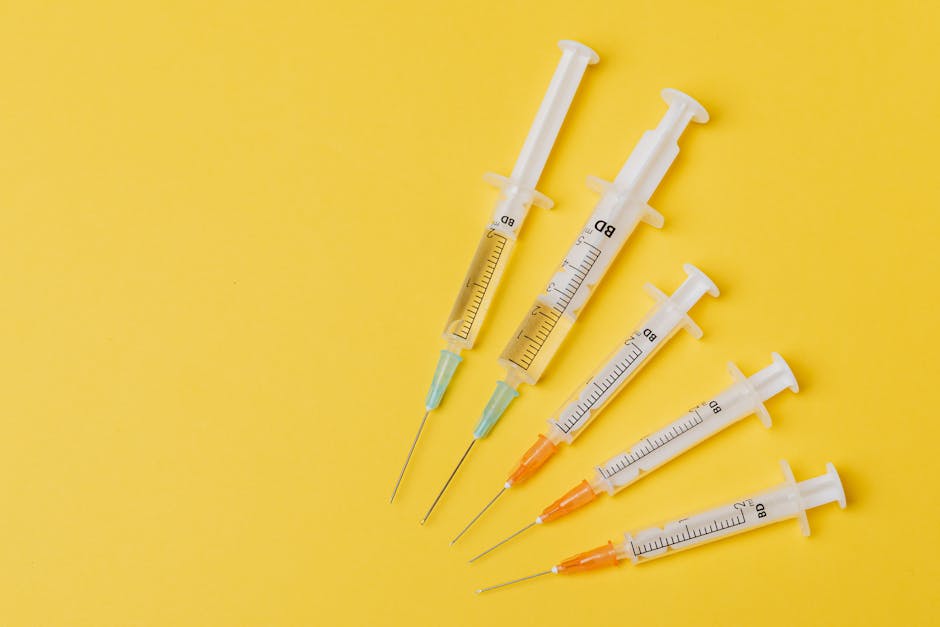Antibiotic Use and You: Best Practices
Did you know that antibiotics save millions of lives each year? Yet, many of us still misunderstand how to use them properly. Misusing antibiotics can lead to serious health problems, including antibiotic resistance. This article will guide you through the best practices for using antibiotics safely.
What Are Antibiotics and How Do They Work?

Antibiotics are powerful medicines that fight bacterial infections. They work by killing bacteria or slowing their growth. However, they do not work on viral infections like the common cold or flu.
Think of it this way: if bacteria are like unwanted guests at a party, antibiotics are the bouncers kicking them out. But using them when they aren’t needed is like calling the bouncers for a friendly gathering. It doesnt help anyone!
When Do You Need Antibiotics?

It’s crucial to know when antibiotics are necessary. Here are some common scenarios:
- Severe bacterial infections: These include strep throat or bacterial pneumonia.
- Infections that don’t improve: If you have a bacterial infection and it worsens, see a doctor.
- Urinary tract infections: These often require antibiotics to clear up.
Always consult with a healthcare provider before taking antibiotics. They can determine if you truly need them.
What Happens If You don’t Follow the Rules?

Not using antibiotics correctly can lead to antibiotic resistance. This means that bacteria adapt and become stronger. They can survive even when treated with antibiotics. In fact, the World Health Organization warns that antibiotic resistance is one of the biggest threats to global health today.
Common Misconceptions About Antibiotics

Lets clear up some common myths:
- Myth 1: Antibiotics cure viral infections.
Fact: They only work against bacteria. - Myth 2: If you feel better, you can stop taking them.
Fact: Always complete your prescribed course. - Myth 3: Anyone can take antibiotics.
Fact: They should only be taken when prescribed.
How to Use Antibiotics Wisely
Using antibiotics wisely involves several best practices:
- Follow your doctors instructions: Only take antibiotics prescribed for you.
- Finish the course: Do not stop early, even if you feel better.
- don’t share: Never share your antibiotics with others.
- Store properly: Keep antibiotics in a cool, dry place away from light.
- Report side effects: If you experience any unusual symptoms, contact your doctor.
By following these rules, you help ensure antibiotics remain effective for everyone.
What About Over-the-Counter Antibiotics?
Some people think they can buy antibiotics without a prescription. This can be extremely harmful. Over-the-counter antibiotics can lead to misuse and increase the risk of resistance.
Always consult a healthcare provider before taking any medication. They can guide you in the right direction.
How Can You Prevent Infections?
Prevention is key to reducing the need for antibiotics. Here are some simple steps to follow:
- Wash your hands: Regular handwashing can prevent many infections.
- Get vaccinated: Vaccines can prevent diseases that might need antibiotics.
- Practice safe food handling: Proper cooking and storage can avoid foodborne illnesses.
- Stay away from sick people: Avoid close contact with those who are ill.
By taking these steps, you can help keep yourself and others healthy.
What Should You Do If You Feel Unwell?
If you start feeling sick, don’t rush to demand antibiotics. Instead, visit your healthcare provider. They can assess your symptoms and determine the best course of action.
Sometimes rest, hydration, and over-the-counter medications are all you need. Other times, you might require antibiotics. Your doctor will know the difference.
What Are the Consequences of Antibiotic Resistance?
Antibiotic resistance is serious. It can make infections harder to treat and lead to longer hospital stays. Some common infections may become deadly.
According to the Centers for Disease Control and Prevention (CDC), at least 2.8 million antibiotic-resistant infections occur each year in the United States. This results in over 35,000 deaths annually.
How Can You Help Fight Antibiotic Resistance?
Each one of us can contribute to combating antibiotic resistance:
- Educate yourself about antibiotics and their proper use.
- Advocate for responsible use in your community.
- Support healthcare initiatives that promote responsible antibiotic use.
Every action counts when it comes to preserving the effectiveness of antibiotics.
Are There Alternatives to Antibiotics?
Yes! In some cases, there are alternatives to antibiotics:
- Rest and hydration: For mild infections, your body may fight it off naturally.
- Home remedies: Some herbal or home remedies can help alleviate symptoms.
- Probiotics: These can help maintain healthy gut bacteria, especially after antibiotic use.
Always consult your doctor before trying alternatives, especially if you’re unsure.
What Are the Final Takeaways?
Understanding antibiotics is crucial for your health. Here are the key points to remember:
- Only use antibiotics when prescribed by a healthcare professional.
- Finish your entire course, even if you feel better.
- Prevent infections through good hygiene and vaccinations.
- Stay informed about antibiotic resistance and it’s consequences.
By following these best practices, you help protect yourself and others. For a deeper understanding of antibiotic resistance, you can check out the CDC’s [Antibiotic Resistance page](https://www.cdc.gov/antibiotic-use/index.html).
Remember, knowledge is power. By using antibiotics wisely, you’re contributing to a healthier future for everyone.
